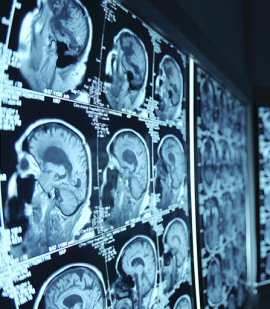 The brains of men with body dysmorphic disorder activate differently in front of mirrors, causing them to see their faces incorrectly in the mirror, according to a report in the Archives of General Psychiatry.
The brains of men with body dysmorphic disorder activate differently in front of mirrors, causing them to see their faces incorrectly in the mirror, according to a report in the Archives of General Psychiatry.
Body dysmorphic disorder (BDD) is a psychiatric condition that affects 1-2 percent of the population. Patients with the condition become preoccupied with perceived defects in their appearance. They can become distressed and about 25 percent attempt suicide. Despite its prevalence and severe effects, little is known about the underlying brain changes that cause the dysfunction.
To explore the brain's role further, Jamie D. Feusner and colleagues at the David Geffen School of Medicine, University of California, Los Angeles, assessed 17 patients with body dysmorphic disorder and 16 healthy controls matched by sex, age and education level.
The participants underwent fMRI scanning while viewing photographs of two faces - their own and that of a familiar actor - unaltered and then altered in two ways to exclude different elements of visual processing. One altered version included only high spatial frequency information, which would allow detailed analysis of facial traits (including blemishes and hairs). The other showed only low spatial frequency information, which conveys the general shape of the face and relationships between facial features.
The researchers found that compared with the control participants, individuals with BDD demonstrated abnormal brain activity in regions associated with visual processing when viewing the unaltered and low spatial frequency versions of their own faces. They also had unusual activation patterns in their frontostriatal systems, which help control and guide behavior and maintain emotional flexibility in responding to situations.
The abnormal activation patterns - particularly in response to low spatial frequency images - suggest that individuals with BDD have difficulties perceiving or processing general information about faces. "Clinically, this may account for the impaired ability to perceive the visual gestalt, contributing to distorted perceptions of the individuals' appearance when viewing their face," the study notes. "The individuals may primarily perceive details and are impaired in their ability to contextualize them configurally or holistically."
Interestingly, Feusner said that some of the patterns appear to be similar to those observed in patients with obsessive-compulsive disorder, supporting hypotheses that the two conditions share similar neural pathways.
Related:
Body Image Disorder Affecting More Men
Penile Augmentation Study Laments "Unconvincing Results"
America's Body Image Obsession
Source: University of California - Los Angeles





